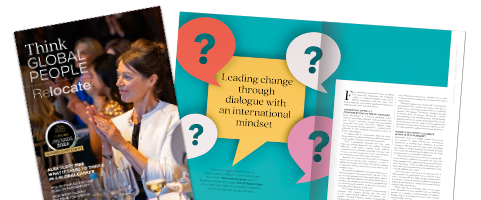Good news for universities and international students as Migration Advisory Committee recommends UK retains the Graduate visa

By Vanessa Ganguin, Managing Partner, Vanessa Ganguin Immigration Law
The Migration Advisory Committee (MAC) has recommended retaining the Graduate visa in its current form. The MAC published its findings on the route after the Home Secretary asked for a rapid review as part of measures to reduce legal migration to the UK.
The recommendation is great news for the UK higher education sector which depends greatly on its appeal to international students whose fees subsidise the teaching of UK students as well as universities’ viability to teach a variety of courses, plus their ability to carry out scientific and academic research. Hopefully certainty will follow for universities and international students when the government officially responds to the influential committee’s findings.
A Graduate visa gives eligible applicants studying in higher education in Britain on a student visa an option to stay and work without the need for sponsorship in the UK for two years (three years for a PhD of other doctoral qualification).
A Graduate visa cannot be extended, but those who want to stay and work in the UK may be able to switch to another visa, for example, a Skilled Worker visa if they have an employer willing to sponsor them and pay the appropriate salary threshold.
The Home Secretary and some other Conservative colleagues have expressed concerns that work rather than education may have drawn some international students to the UK since 2022 when the Graduate visa extended the time international students have to find work in the UK after graduating.
However, to stay in the UK after a two-year Graduate visa most students would have to be sponsored by an employer as a Skilled Worker. Though obviously it is easier to find a suitable job in the UK with some local experience under your belt, completing and passing a degree is a rather long-winded, academically-challenging and expensive option as anyone eligible can be sponsored as a Skilled Worker without having to be in the UK or studying here.
What does the Migration Advisory Committee report say?
The MAC addressed the Home Secretary’s questions about the route being abused. The Committee found no evidence of widespread abuse of the immigration rules. The risks of abuse are low, it found, relatively low due to the limited number of conditions the route imposes.
The Mac report found the route brings a net benefit to the public purse. The government’s own analysis shows the visa is set to bring in £12.9 billion of additional tax revenue compared to £6.8 billion of extra fiscal costs between 2021-22 and 2030-31. Since the Graduate route was established, a total of 175,872 visas have been granted.
Apart from a higher proportion working as carers, Graduate visa holders switching to Skilled Worker visas tend to enter similar occupations as domestic graduates.
The expert report found that the Graduate route is broadly achieving its objectives and supporting the UK government’s International Education Strategy. It had contributed to ensuring the government’s target of 600,000 international students studying in Britain had been met ahead of time, with a diverse cohort of international students contributing to British universities and research.
The attraction to international students had contributed to the government’s policy of “levelling up” left-behind regions outside the capital. “Based on where the expansion of student numbers has occurred and the reliance of regional economies upon universities, a decrease in international student numbers due to the restriction or closure of the Graduate route could disproportionately impact local and regional economies outside London and the South East”, the report warned.
The Mac was asked to examine if the graduate route undermines the integrity or quality of British higher education. They found this was not the case.
On the contrary, as international student fees make up universities’ financial deficit from teaching domestic students and research, the committee counselled that significant restrictions to the Graduate route “should only be considered once the structural funding issues in the higher education sector have been addressed.”
The independent committee which advises the UK Government on immigration policy warned that otherwise: “universities across the nations of the UK will experience further substantial financial difficulty leading to job losses, course closures and a reduction in research, and in the extreme it is not inconceivable that some institutions would fail.”
Banning non-research postgraduates from bringing dependants to the UK from January this year, plus uncertainty over the Graduate visa have had a chilling effect on international student applications which British universities rely on financially, the report outlined. It warned that many international students already felt unwelcome.
The report acknowledged that Brexit and other policies mean higher education institutions are forced to actively recruit more from abroad to alleviate increased financial pressures. It warned that some international students are exploited by agents and sub-agents mis-selling courses. The MAC recommended that the government should establish a mandatory registration system with quality controls for international recruitment agents and that universities should be more transparent about their use.
The other main recommendation for universities was to keep statistics on the level of degree achieved as well as whether international students had successfully completed it – (which is one of the requirements of a Graduate visa application.)
What does the Migration Advisory Committee report say?
The MAC addressed the Home Secretary’s questions about the route being abused. The Committee found no evidence of widespread abuse of the immigration rules. The risks of abuse are low, it found, relatively low due to the limited number of conditions the route imposes.
The Mac report found the route brings a net benefit to the public purse. The government’s own analysis shows the visa is set to bring in £12.9 billion of additional tax revenue compared to £6.8 billion of extra fiscal costs between 2021-22 and 2030-31. Since the Graduate route was established, a total of 175,872 visas have been granted.
Apart from a higher proportion working as carers, Graduate visa holders switching to Skilled Worker visas tend to enter similar occupations as domestic graduates.
The expert report found that the Graduate route is broadly achieving its objectives and supporting the UK government’s International Education Strategy. It had contributed to ensuring the government’s target of 600,000 international students studying in Britain had been met ahead of time, with a diverse cohort of international students contributing to British universities and research.
The attraction to international students had contributed to the government’s policy of “levelling up” left-behind regions outside the capital. “Based on where the expansion of student numbers has occurred and the reliance of regional economies upon universities, a decrease in international student numbers due to the restriction or closure of the Graduate route could disproportionately impact local and regional economies outside London and the South East”, the report warned.
The Mac was asked to examine if the graduate route undermines the integrity or quality of British higher education. They found this was not the case.
On the contrary, as international student fees make up universities’ financial deficit from teaching domestic students and research, the committee counselled that significant restrictions to the Graduate route “should only be considered once the structural funding issues in the higher education sector have been addressed.”
The independent committee which advises the UK Government on immigration policy warned that otherwise: “universities across the nations of the UK will experience further substantial financial difficulty leading to job losses, course closures and a reduction in research, and in the extreme it is not inconceivable that some institutions would fail.”
Banning non-research postgraduates from bringing dependants to the UK from January this year, plus uncertainty over the Graduate visa have had a chilling effect on international student applications which British universities rely on financially, the report outlined. It warned that many international students already felt unwelcome.
The report acknowledged that Brexit and other policies mean higher education institutions are forced to actively recruit more from abroad to alleviate increased financial pressures. It warned that some international students are exploited by agents and sub-agents mis-selling courses. The MAC recommended that the government should establish a mandatory registration system with quality controls for international recruitment agents and that universities should be more transparent about their use.
The other main recommendation for universities was to keep statistics on the level of degree achieved as well as whether international students had successfully completed it – (which is one of the requirements of a Graduate visa application.)
The UK government is asked to make informed immigration policy
Noting that Home Secretary’s letter commissioning the Rapid Review appeared to misunderstand Home Office data, the report also asked that significant immigration policy changes only be made when the government “has a clear plan for how it will collect and monitor data to assess the effectiveness of the route against its objectives and understand wider impacts.”
The foreword to the MAC’s report contained its toughest warning yet against making knee-jerk immigration policies without properly exploring the impact to Britain’s economy and important sectors of society.
“We repeat the observation that we made in our last Annual Report that the government needs to consider the total impact of a policy change rather than simply its effect on net migration,” wrote the report’s authors, led by committee chair Professor Brian Bell.
They added: “As in social care, it is the failure to properly fund the sector that has led to an increasing overreliance on immigration. Universities lose money on teaching domestic students and on research activities, and it is the fee revenue from international students that mitigates (at least in part) the current funding gap for domestic students and research. We have had no indication in our discussion with Ministers, either in Westminster or the Devolved Administrations, that there is any plan in place to address this structural under-funding.
“In such circumstances, any policy change to the Graduate route intended to reduce student numbers would need to explain how the financial consequences for the sector would be addressed.”
How will the UK government respond to the MAC’s review of the Graduate visa?
A response from the UK government on the future of this immigration route is expected in the next few days. While some anti-immigration figures on the right of the Conservative party – such as ex-immigration minister Robert Jenrick have been agitating against the useful route for international graduates to spend two years working in the UK, Prime Minister Rishi Sunak would appear foolhardy to ignore a report that warns of courses and possibly universities closing without the funding that would be lost.
The MAC have been about as categorical as they can possibly be in the rapid review that the Home Secretary asked for. The Labour party – likely to form the next government later this year – have said they were waiting to see what the MAC had to say before commenting on what their policy would be. Even if the current government was rash enough to ignore the review it commissioned, one would expect that the Labour party would commit to ensuring the visa remains viable to give the university sector and international students the stability they need.
Commenting on the report, Chief Executive of the elite Russell Group of UK universities, Dr Tim Bradshaw said: “The MAC’s thoughtful review is crystal clear: the Graduate Route should be retained in full, finding no evidence of widespread abuse.
“International students bring huge value to our university communities, offering global perspectives and important skills, and creating diverse learning environments. As the MAC recognises, they are also critical to the financial sustainability of our world-leading universities. Moreover, the Graduate route plays a crucial role in ensuring the UK is an attractive destination for global talent.
“We recognise concerns around the behaviour of some agents and we would support targeted measures to address this. However, the overall message from the MAC is that the Graduate Route is achieving its objectives as set out by the Government. We would therefore urge Ministers to end the uncertainty and confirm as soon as possible that the route will continue in its entirety.”
Read about award-winning global mobility, leadership and education in the upcoming Summer issue of Think Global People magazine, which will reveal the teams and organisations being celebrated in the Relocate Think Global People Awards 2024. Secure your copy here.
Have you heard about our Think Global People community?
International SOS, the world’s leading health and security services company, releases findings on the financial impact that failed business trips and international assignments, can have on organisations. Supported by a Return on Investment report led by Ipsos and developed with KPMG, the figures show that the cost of a failed international assignment can reach up to USD 1.25 million. Deficiencies in health, security, and wellbeing prevention of an organisation’s mobile workforce can be reasons for failed assignments.
Commenting on the figure, and the importance of preventative strategies, Katherine Avery, Tax Principal at KPMG, states, “With the impact to the business of a failed international assignment potentially being detrimental, striking a balance between managing cost and employee experience is vital for the success of any assignment. Engaging with the internal global mobility team early in the planning stages can be highly beneficial, as their expertise with the mobility policy and understanding of the organisation, can help to ensure an optimal employee experience while also effectively managing cost and compliance.”
Last year, International SOS proactively disseminated approximately 8.5 million medical and security alerts and special advisories each month to mobile workers and those responsible for safeguarding their wellbeing. The Return on Investment report highlights the importance of this work, especially in light of the KPMG’s estimate of the cost of a failed assignment.
Dr Neil Nerwich, Group Medical Director at International SOS, comments: “The key points with respect to cost containment are proactivity, in both, the prevention of medical incidents through appropriate preparation and education of employees before deployment and travel. The interventions we take very early on in the course of a medical event have a significant impact on the ultimate medical outcome of a patient. At International SOS, early intervention is at the core of our approach, which starts before an individual travels or is assigned overseas. When we are highly proactive, we are not only significantly benefiting medical outcomes, but also mitigating for our clients’ business disruption. By addressing illnesses or injuries promptly with International SOS medical professionals involved from the first contact, we can identify and mitigate potential issues that might escalate into catastrophic events.”
The Return on Investment report also examines the cost-effectiveness of travel risk prevention strategies. Data from the report shows that preventive health check programmes can yield a significant return, with every USD 1.00 invested potentially resulting in a USD 2.53 return.
Furthermore, it is reported 72% of HR specialists reported a positive impact on employee wellbeing and resilience when partnering with third-party specialist organisations. This improvement is attributed to the increased access to mental health support programmes and resources. Around three quarters of survey respondents have also indicated a substantial reduction in both the frequency and duration of business disruptions caused by medical emergencies or incidents through accessing International SOS services.
The Return on Investment report was developed in conjunction with KPMG between June and September 2023 by Ipsos, the market leading research firm, on behalf of International SOS. The research involved surveying senior decision makers responsible for risk management, health, safety and/or security of people from 255 International SOS clients across the world.To determine the potential financial risk of a failed international assignment, KPMG analysed representative long-term assignment data to estimate the cost to an organisation in four key areas: Compensation, Relocation Costs, Ongoing Assignment Support, and Taxes. Using this data, KPMG calculated an average yearly cost for these respective categories and extrapolated these figures over the average length of a long-term assignment.
About KPMG International
KPMG is a global organization of independent professional services firms providing Audit, Tax and Advisory services. KPMG is the brand under which the member firms of KPMG International Limited (“KPMG International”) operate and provide professional services. “KPMG” is used to refer to individual member firms within the KPMG organization or to one or more member firms collectively.KPMG firms operate in 143 countries and territories with more than 273,000 partners and employees working in member firms around the world. Each KPMG firm is a legally distinct and separate entity and describes itself as such. Each KPMG member firm is responsible for its own obligations and liabilities.KPMG International Limited is a private English company limited by guarantee. KPMG International Limited and its related entities do not provide services to clients.For more detail about our structure, please visit kpmg.com/governance.
About the International SOS Group of Companies
The International SOS Group of Companies is in the business of saving lives and protecting your global workforce from health and security threats. Wherever you are, we deliver customised health, security risk management and wellbeing solutions to fuel your growth and productivity. In the event of extreme weather, an epidemic or a security incident, we provide an immediate response providing peace of mind. Our innovative technology and medical and security expertise focus on prevention, offering real-time, actionable insights and on-the-ground quality delivery. We help protect your people, and your organisation’s reputation, as well as support your compliance reporting needs. By partnering with us, organisations can fulfil their Duty of Care responsibilities, while empowering business resilience, continuity, and sustainability.
Founded in 1985, the International SOS Group, headquartered in London & Singapore, is trusted by over 9,000 organisations. This includes the majority of the Fortune Global 500. As well as mid-size enterprises, governments, educational institutions, and NGOs. Nearly 12,000 multi-cultural security, medical, logistics and digital experts stand with you to provide support & assistance from over 1,200 locations in 90 countries, 24/7, 365 days. Between them, International SOS employees speak nearly 100 languages and dialects in our Assistance Centres, Clinics, and offices.To protect your workforce, we are at your fingertips: www.internationalsos.com
Read about award-winning global mobility, leadership and education in the upcoming Summer issue of Think Global People magazine, which will reveal the teams and organisations being celebrated in the Relocate Think Global People Awards 2024. Secure your copy here.
Have you heard about our Think Global People community?


 Magazine
Magazine



